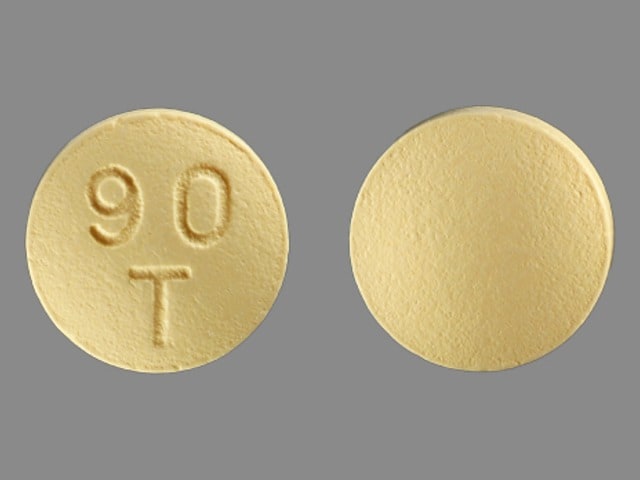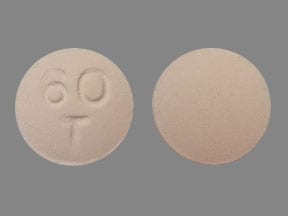What is Brilinta?
Brilinta is a prescription medicine used to:
- decrease your risk of death, heart attack, and stroke in people with a blockage of blood flow to the heart (acute coronary syndrome or ACS) or a history of a heart attack. Brilinta can also decrease your risk of blood clots in your stent in people who have received stents for the treatment of ACS.
- decrease your risk of a first heart attack or stroke in people who have a condition where the blood flow to the heart is decreased (coronary artery disease or CAD) who are at high risk for having a heart attack or stroke.
- decrease your risk of stroke in people who are having a stroke (acute ischemic stroke) or mini-stroke (transient ischemic attack or TIA).
It is not known if Brilinta is safe and effective in children.
What is the most important information I should know about Brilinta?
Brilinta is used to lower your chance of having a heart attack or dying from a heart attack or stroke but Brilinta (and similar drugs) can cause bleeding that can be serious and sometimes lead to death. In cases of serious bleeding, such as internal bleeding, the bleeding may result in the need for blood transfusions or surgery. While you take Brilinta:
- you may bruise and bleed more easily
- you are more likely to have nose bleeds
- it will take longer than usual for any bleeding to stop
Call your doctor right away, if you have any of these signs or symptoms of bleeding while taking Brilinta:
- bleeding that is severe or that you cannot control
- pink, red or brown urine
- vomiting blood or your vomit looks like “coffee grounds”
- red or black stools (looks like tar)
- coughing up blood or blood clots
Do not stop taking Brilinta without talking to the doctor who prescribes it for you. People who are treated with a stent, and stop taking Brilinta too soon, have a higher risk of getting a blood clot in the stent, having a heart attack, or dying. If you stop Brilinta because of bleeding, or for other reasons, your risk of a heart attack or stroke may increase.
Your doctor may instruct you to stop taking Brilinta 5 days before surgery. This will help to decrease your risk of bleeding with your surgery or procedure. Your doctor should tell you when to start taking Brilinta again, as soon as possible after surgery.
Taking Brilinta with aspirin
Brilinta is taken with aspirin. Talk to your doctor about the dose of aspirin that you should take with Brilinta. You should not take a dose of aspirin higher than 100 mg daily because it can affect how well Brilinta works. Do not take doses of aspirin higher than what your doctor tells you to take. Tell your doctor if you take other medicines that contain aspirin, and do not take new over-the-counter medicines with aspirin in them.
Who should not take Brilinta?
Do not take Brilinta if you:
- have a history of bleeding in the brain
- are bleeding now
- are allergic to ticagrelor or any of the ingredients in Brilinta. See the end of this medication guide for a complete list of ingredients in Brilinta.
What should I tell my healthcare provider before taking Brilinta?
Before taking Brilinta, tell your doctor about all of your medical conditions, if you:
- have had bleeding problems in the past
- have had any recent serious injury or surgery
- plan to have surgery or a dental procedure
- have a history of stomach ulcers or colon polyps
- have lung problems, such as COPD or asthma
- have liver problems
- have a history of stroke
- are pregnant or plan to become pregnant. It is not known if Brilinta will harm your unborn baby. You and your doctor should decide if you will take Brilinta.
- are breastfeeding or plan to breastfeed. It is not known if Brilinta passes into your breast milk. You and your doctor should decide if you will take Brilinta or breastfeed. You should not do both without talking with your doctor.
Tell all of your doctors and dentists that you are taking Brilinta. They should talk to the doctor who prescribed Brilinta for you before you have any surgery or invasive procedure.
Tell your doctor about all the medicines you take, including prescription and over-the-counter medicines, vitamins, and herbal supplements. Brilinta may affect the way other medicines work, and other medicines may affect how Brilinta works.
Especially tell your doctor if you take:
- an HIV-AIDS medicine
- medicine for heart conditions or high blood pressure
- medicine for high blood cholesterol levels
- medicine used to control pain
- an anti-fungal medicine by mouth
- an antibiotic medicine
- an anti-seizure medicine
- a blood thinner medicine
- rifampin
Ask your doctor or pharmacist if you are not sure if your medicine is listed above.
Know the medicines you take. Keep a list of them to show your doctor and pharmacist when you get a new medicine.
How should I take Brilinta?
- Take Brilinta exactly as prescribed by your doctor.
- Your doctor will tell you how many Brilinta tablets to take and when to take them.
- Take Brilinta with aspirin as directed by your doctor.
- You may take Brilinta with or without food.
- Take your doses of Brilinta around the same time every day.
- If you forget to take your scheduled dose of Brilinta, take your next dose at its scheduled time. Do not take 2 doses at the same time unless your doctor tells you to.
- If you take too much Brilinta or overdose, call your doctor or poison control center right away, or go to the nearest emergency room.
- If you are unable to swallow the tablet(s) whole, you may crush the Brilinta tablet(s) and mix it with water. Drink all the water right away. Refill the glass with water, stir, and drink all the water.
What are the possible side effects of Brilinta?
Brilinta can cause serious side effects, including:
- See “What is the most important information I should know about Brilinta?” above.
- Shortness of breath. Call your doctor if you have new or unexpected shortness of breath when you are at rest, at night, or when you are doing any activity. Your doctor can decide what treatment is needed.
- Irregular breathing. Tell your doctor if you develop irregular breathing patterns when asleep or awake such as speeding up, slowing down or short pauses in breathing. Your doctor will decide if you need further evaluation.
These are not all of the possible side effects of Brilinta.
Call your doctor for medical advice about side effects. You may report side effects to FDA at 1-800-FDA-1088.
Brilinta Images
General information about Brilinta
Medicines are sometimes prescribed for purposes other than those listed in a Medication Guide. Do not use Brilinta for a condition for which it was not prescribed. Do not give Brilinta to other people, even if they have the same symptoms you have. It may harm them. You can ask your pharmacist or doctor for information about Brilinta that is written for health professionals.
How should I store Brilinta?
- Store Brilinta at room temperature between 68°F to 77°F (20°C to 25°C).
Keep Brilinta and all medicines out of the reach of children.
What are the ingredients in Brilinta?
Active ingredient: ticagrelor.
Inactive ingredients:
90mg tablets: mannitol, dibasic calcium phosphate, sodium starch glycolate, hydroxypropyl cellulose, magnesium stearate, hydroxypropyl methylcellulose, titanium dioxide, talc, polyethylene glycol 400, and ferric oxide yellow.
60mg tablets: mannitol, dibasic calcium phosphate, sodium starch glycolate, hydroxypropyl cellulose, magnesium stearate, hydroxypropyl methylcellulose, titanium dioxide, polyethylene glycol 400, ferric oxide black and ferric oxide red.
For more information call 1-800-236-9933 or go to www.Brilinta.com.



